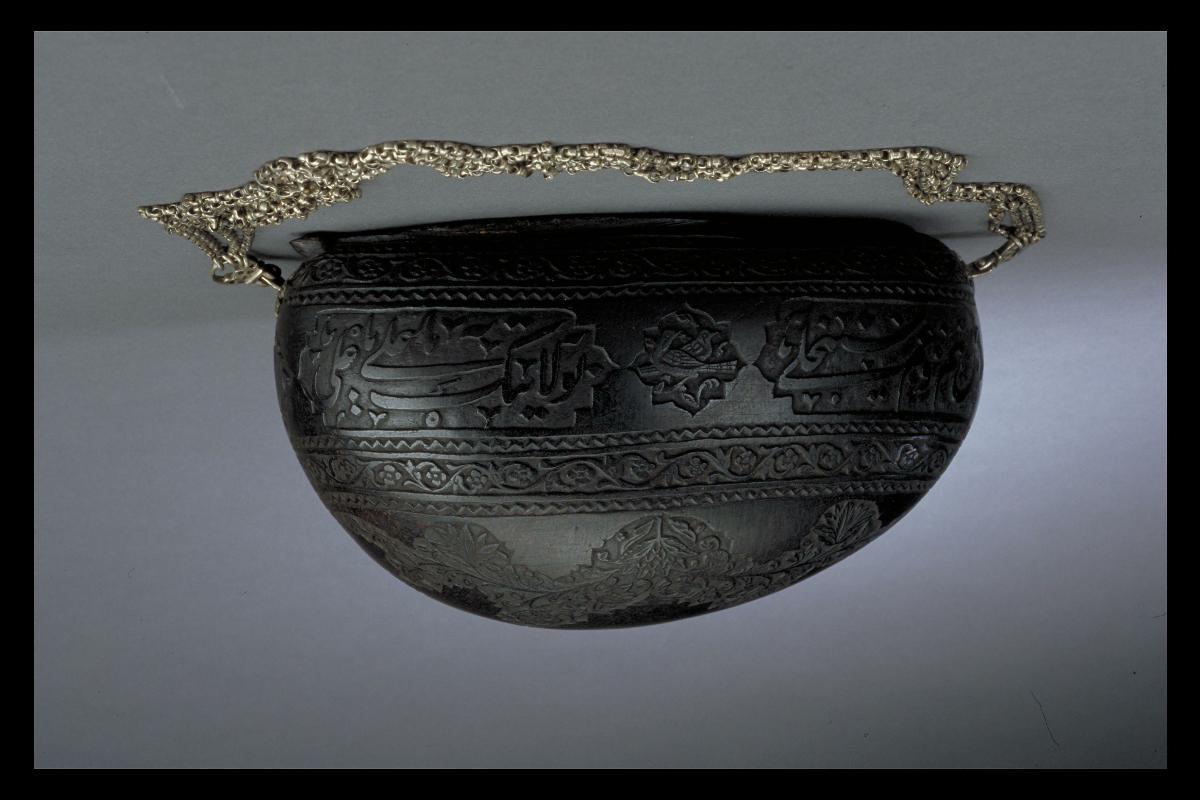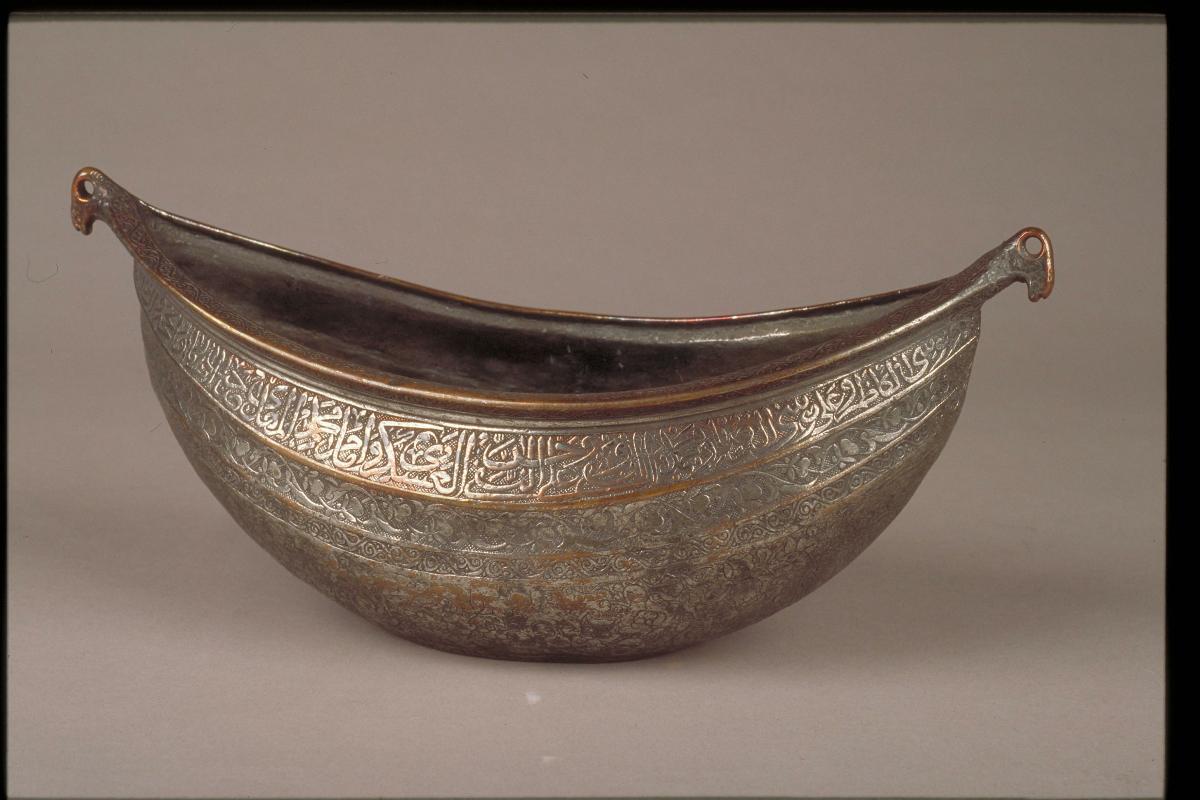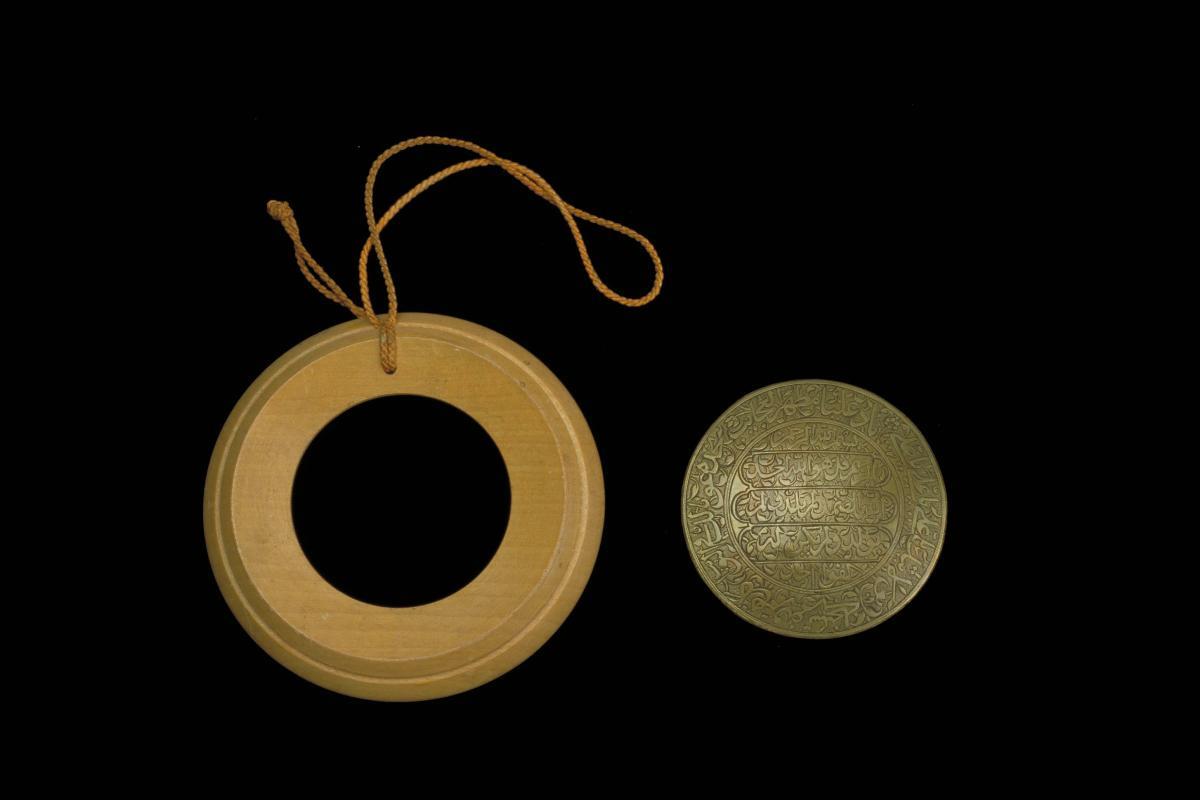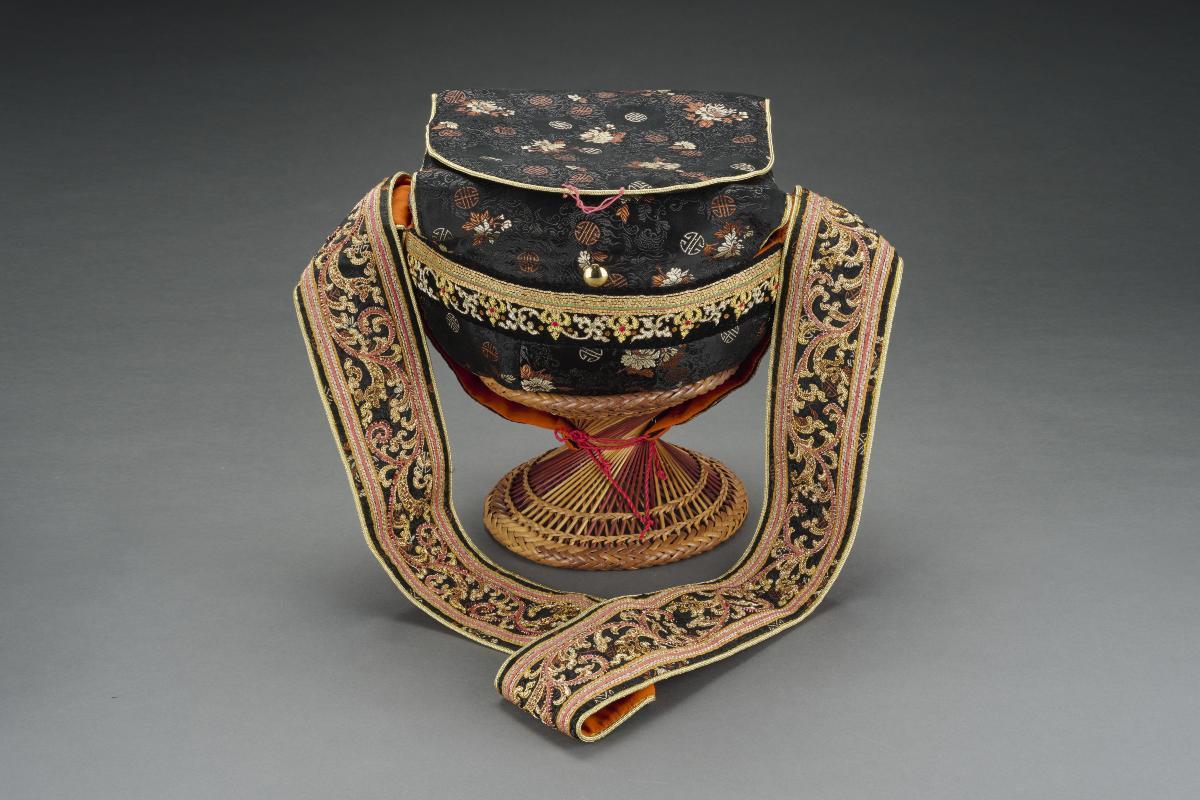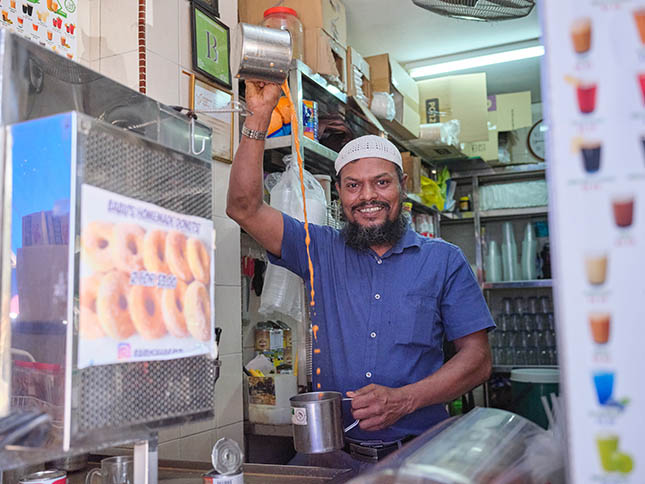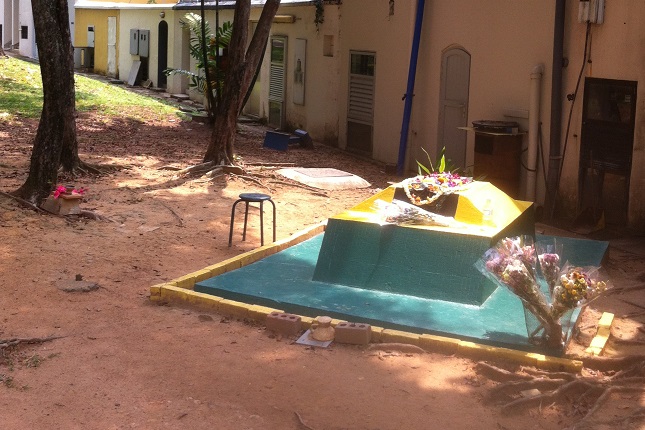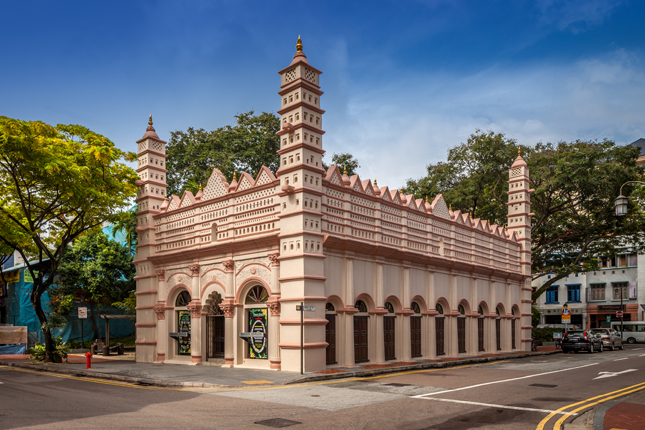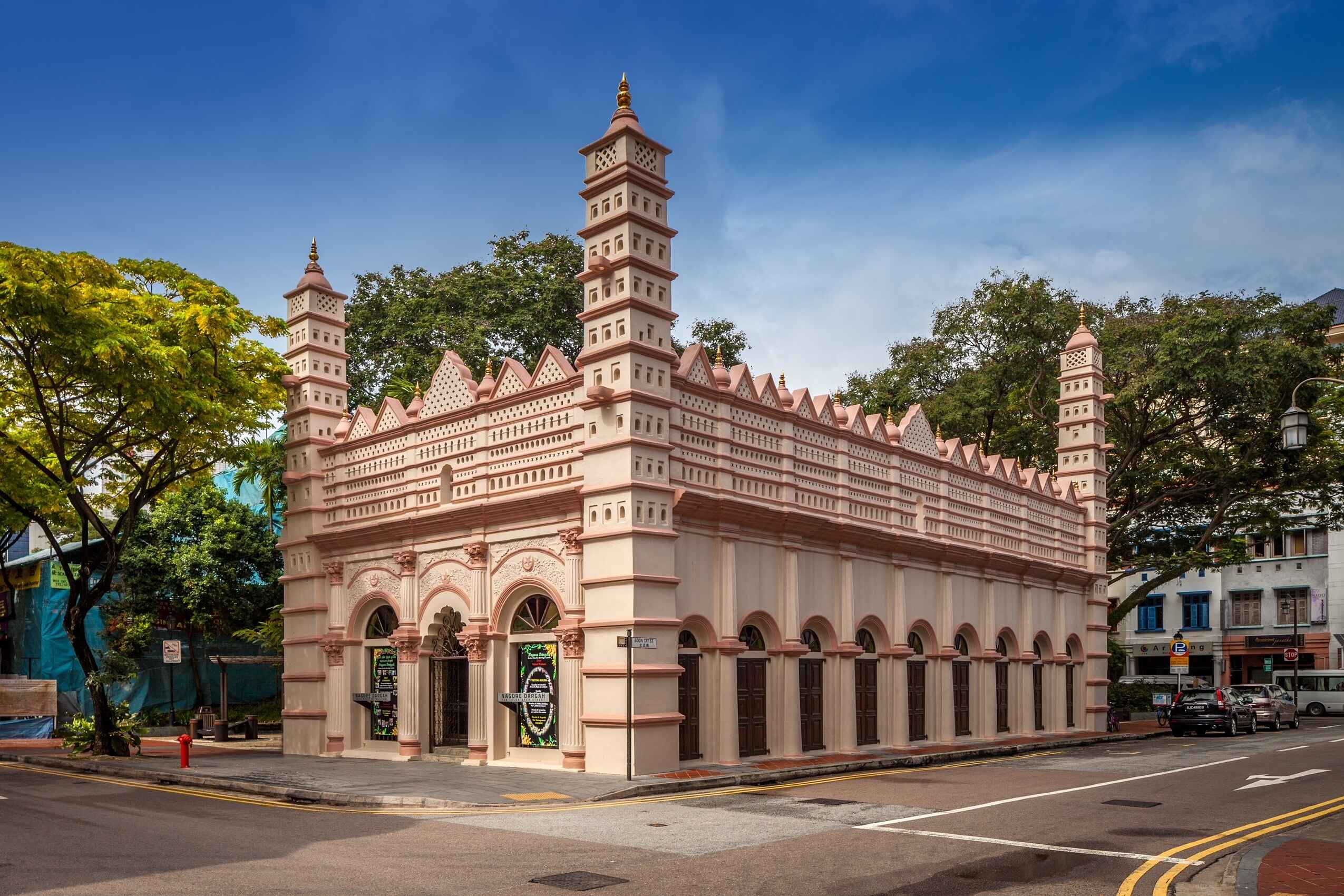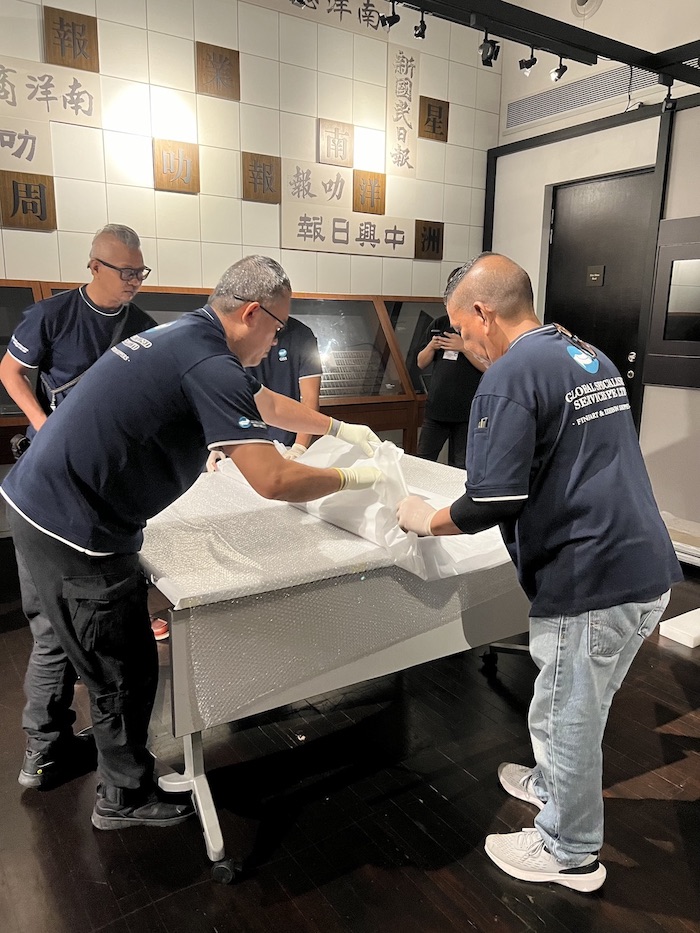This begging bowl probably belonged to a Sufi, also known as darwish in Persian (from which we get the English term ‘dervish’). The darwish would dress differently from the rest of society, wearing simple woollen garments and carrying 'kashkul' (begging bowls), made of metal or coconut shells. The kashkul represents the dervish’s lack of attachment to food and the materialism of dining ware. It is thus a symbol of devotion to his spirituality. However, kashkul are often beautified with elegant carving, devotional inscriptions and decorative inlay as a gesture of reverence to beauty that God has provided. Other accoutrements of the darwish also include prayer beads, water and food containers, musical instruments and an axe. The Sufi (mystic), in his ‘Path’, must undertake voluntary poverty and asceticism. Poverty (faqr) should be more of a spiritual nature (absence of desire for material wealth) than actual physical poverty. Many Sufis who pursued this concept, did renounce their worldly belongings.




